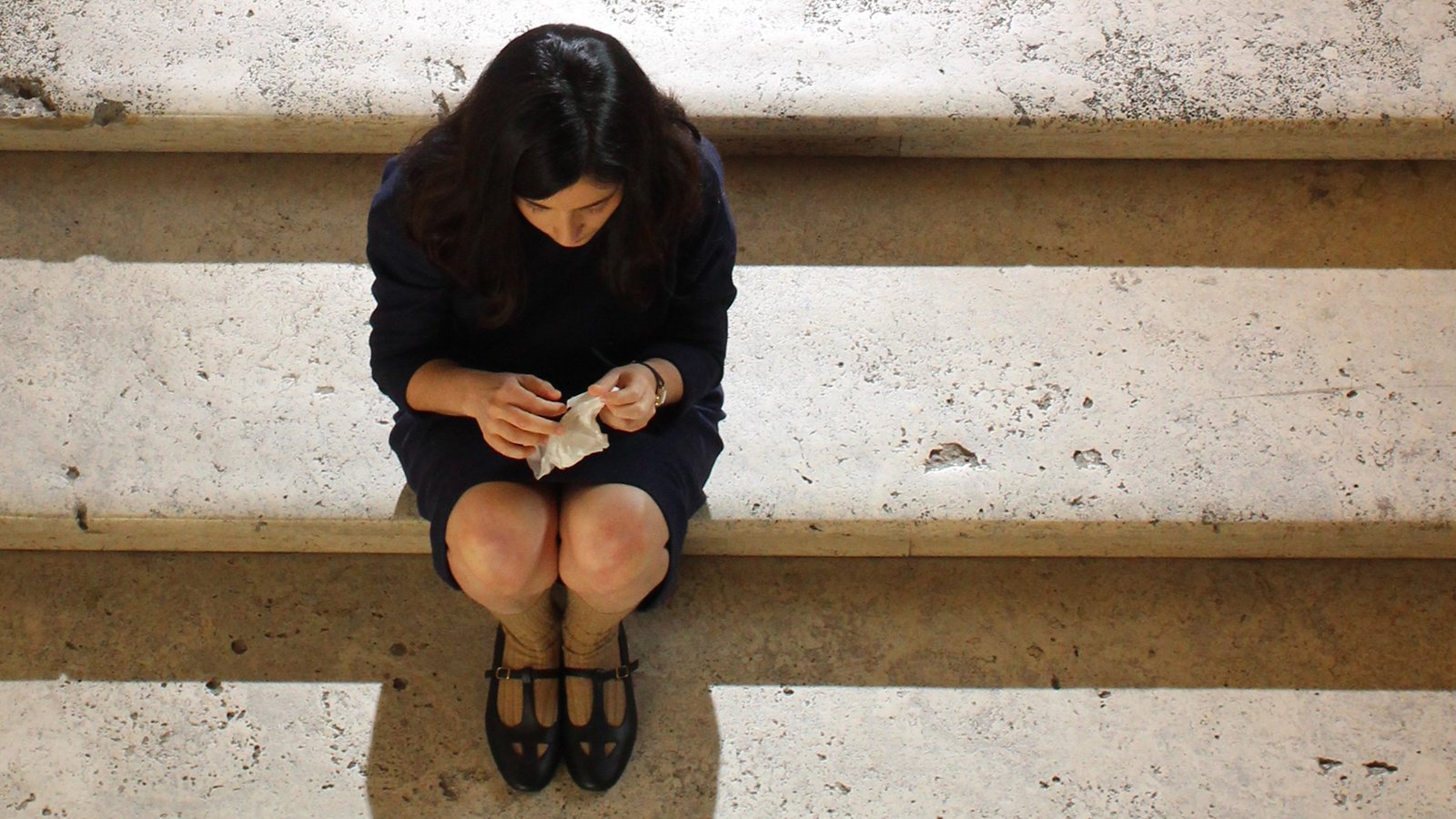The Girl from Tomorrow screens at the Sydney Film Festival on June 8 and 9.
In The Girl from Tomorrow Marta Savina extends her award-winning short film Viola, Franca about the woman who challenged the Italian legal system over matrimonio riparatore, a practice which pushed women to marry their rapists to absolve the crime. The Girl from Tomorrow is a fictional version of Viola Franca’s experiences but closely follows the events that inspired the film.
It is 1965 and the bright young Lia Crimi (Claudia Gusmano) is filled with irrepressible energy. She lives in a Sicilian town with her parents Pietro (Fabrizio Ferracane) Sara (Manuela Ventura) and her young brother Mario (Francesco Giulio Cerilli) on a struggling farm. Sara is a God-fearing woman, Pietro more cynical, and Lia is waking up to the gendered expectations that are about to be imposed on her. Visits to the local church see her starting to reject the strict patriarchal order of Catholicism. They also find her once again seeing a previous crush Lorenzo Musicò (Dario Aita) returned from Germany where his implied Mafia connected father sent him. Lorenzo has the suave charm that would impress most young women – he’s handsome, modern, and rich. Pietro fears for Lia, understanding the powerful Musicò family are not to be trusted but Lia is a rebellious soul who meets Lorenzo in secret.
Lia is still an innocent only allowing Lorenzo to kiss her on the cheek during their rendezvous. Lorenzo’s possessive and jealous nature leads Lia to realise that if she were to marry him, she would utterly be under his control. He throws away her hairclip telling her that she is not to try to cheapen her beauty. He tells her she is not to work in the fields with her father (something she enjoys doing). She rejects his offer of marriage which would involve a voluntary elopement to ensure that Pietro would be forced to allow the marriage. That rejection spurs Lorenzo to come to her home, armed and with a group of associates, and assault Sara and then kidnap Lia and, incidentally, Mario who will not let go of his sister.
Taken to a sparse country house Lia begs for Mario to be released. She is aware that she is in danger and that danger turns into Lorenzo raping her. The rape means that she is a ‘ruined woman’ and her only recourse to remain untarnished is to marry Lorenzo. Lorenzo is so haughtily sure that Lia will agree that he invites Lia’s family to a paciata (appeasement). Lia refuses the marriage and instead has Lorenzo arrested for kidnapping and rape.
Marta Savina documents Lia and the Crimi’s family struggles against the community who have turned on them. Their farm is vandalised. Lia is barred from entering the church. In Sicilian culture rape is seen as a crime against public morality (Article 544) rather than an offence that happened to the victim. Lia, in the mind of the local people, is the criminal. The ‘elopement’ is viewed as something she agreed to. Lia must stand up in court and prove that she was not responsible for the brutality committed against her.
Savina takes a broad view of the oppressive structures in Sicilian society. Amedeo Orlando (Francesco Colella) the former mayor and friend of Pietro was ousted from politics because of his sexuality. He also had the temerity to associate with a sex worker, Ines (Thony) a woman who Lorenzo visits and is also responsible for her position in society – he ‘eloped’ with her too but decided she wasn’t wife material leaving her socially despoiled. Savina’s inclusion of two brave and ethical outsiders highlights the hypocrisy of the priest Dona Zaina (Paolo Pierobon) who works in tandem with the Musicò family to intimate Lia and the Crimi family and ensure that Ines is too afraid to provide witness testimony against Lorenzo.
Although the courthouse scenes are lacklustre at times they are no doubt authentic to what Franca Viola experienced. Orlando argues for Lia as her advocate, a man who feels his own tainted reputation will hamper her chances of success, against a conservative advocate who originally was supposed to represent Lia. The palpable exhaustion and fear that Lia expresses is heartbreaking. She and her family are pariahs, and even if they win the case they have already lost in the eyes of the town. One thing Lia does not want to do is testify, but with Lorenzo claiming she was a willing participant she is forced to relive the horror of her captivity and rape. Being judged by a group of men and surrounded mostly by men in the courthouse is a horrifying drain on Lia, and her fortitude stumbles at times. Savina and Gusmano highlight what a brave and almost unthinkable thing she is doing by continuing the case.
Claudia Gusmano as Lia along with Fabrizio Ferracane as Pietro, and especially Francesco Colella as Orlando give magnificent performances. Each has suffered under the small-minded Sicilian society that refuses to embrace any kind of modernity and remains tied to the church and antiquated ideas of social compliance. Almost all of the town bends to the will of the Musicò family and the church. The police refuse to even investigate the vandalism of Pietro’s farm. The Crimi family has ample reason to be afraid, yet Pietro and Sara are steadfast in the support of Lia. Orlando has already felt the hand of social rejection and his gentle, and at times lightly teasing, support of Lia is captured with deftness by Savina’s script and Colella’s acting.
Lia and her family endure the minacious actions of a community stuck in a barbaric patriarchal system. The translated title The Girl from Tomorrow is apt for what Lia’s actions represent – the first step to bringing Sicily into the twentieth century. The original title Primadonna, first woman, is equally apt. Despite all that Lia (Franca Viola in reality) did the law allowing matrimonio riparatore was not repealed until 1981. Savina’s scathing indictment of the Italian justice system is also a reminder that women are still fighting to overcome victim blaming in sexual assault cases. The Girl from Tomorrow is also the girl of today – and Savina’s feminist filmic history lesson is an empathetic document that honours those who stood up against oppression and a piece that encourages us to remain strong and vigilant against laws that diminish women’s agency and rights.
Director: Marta Savina
Cast: Claudia Gusmano, Fabrizio Ferracane, Francesco Colella
Writer: Marta Savina



